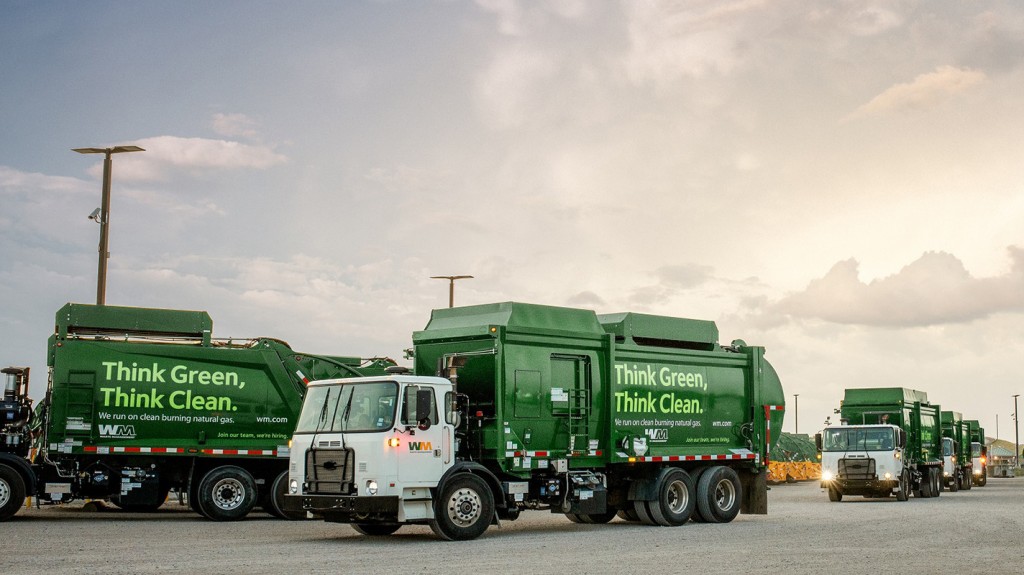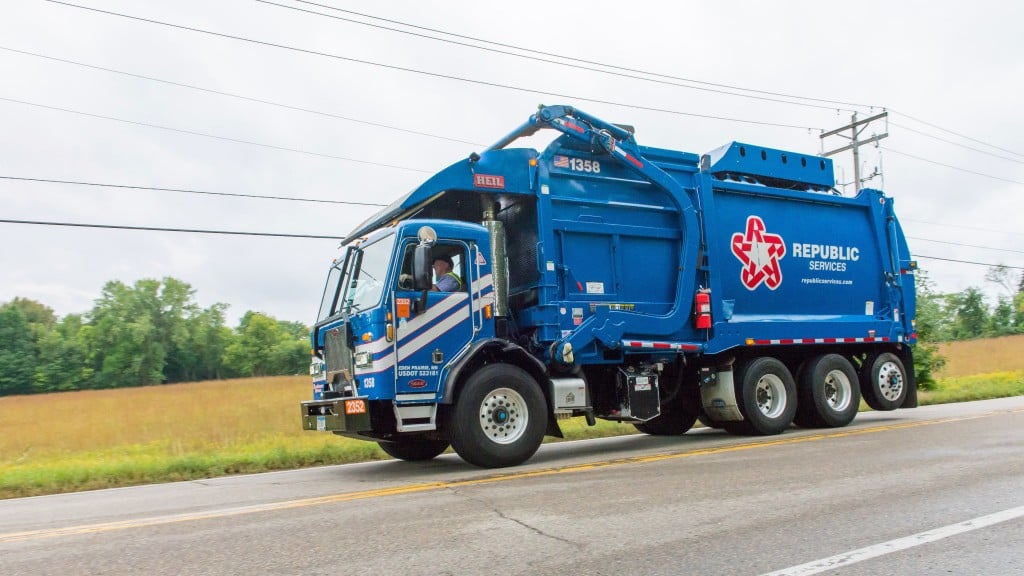Financial report: WM's collection and disposal business helps drive solid results in Q2

WM has released its financial results for the second quarter of 2023.
"Our solid results in the second quarter reflect our continued focus on disciplined pricing and cost optimization across our business," said Jim Fish, WM's president and chief executive officer. "This focus delivered a 60-basis-point expansion in adjusted operating EBITDA margin in the quarter, driven by the collection and disposal business and strong SG&A cost control.
"Our teams have executed well during the first half of 2023, delivering solid results despite persistent inflation in many cost categories, lower-than-anticipated renewable energy prices, and slower-than-planned event-driven volumes. Considering these market-driven impacts and Hurricane Ian clean-up volumes that were significantly lower than expected, we are well-positioned to deliver strong growth in the back half of the year as these pressures abate. We are pleased that our disciplined pricing is keeping pace with rising costs, we are achieving meaningful improvements in frontline turnover, and we are driving leverage on the SG&A expense line. Our teams also continue to execute on our sustainability growth strategy, as three sustainability growth projects came online during the quarter."
Highlights of the second quarter of 2023
Revenue
- The core price for the second quarter of 2023 was 6.9 percent compared to 7.5 percent in the second quarter of 2022.
- The collection and disposal yield was 5.8 percent in the second quarter of 2023 compared to 6.2 percent in the second quarter of 2022.
- Total company, collection, and disposal volumes each increased 0.2 percent in the second quarter of 2023 compared to 1.6 percent and 2.3 percent, respectively, in the second quarter of 2022.
Cost management
- Operating expenses as a percentage of revenue were 62.2 percent in the second quarter of 2023 compared to 62.5 percent in the second quarter of 2022. On an adjusted basis, operating expenses as a percentage of revenue improved 20 basis points to 62.2 percent in the second quarter of 2023 from 62.4 percent in the second quarter of 2022.
- SG&A expenses were 9.1 percent of revenue in the second quarter of 2023 compared to 9.7 percent in the second quarter of 2022. SG&A expenses as a percentage of revenue improved 30 basis points in the second quarter of 2023 from 9.4 percent, on an adjusted basis, in the second quarter of 2022.
Profitability
- Operating EBITDA in the company's collection and disposal business, adjusted on the same basis as total company operating EBITDA, increased by approximately $95 million to $1.63 billion for the second quarter of 2023. Operating EBITDA as a percentage of revenue in the company's collection and disposal business was 31.6 percent for the second quarter of 2023 compared to 31.2 percent for the second quarter of 2022.
- Operating EBITDA in the company's recycling line of business declined by $41 million compared to the second quarter of 2022. The decline was driven by the approximately 55 percent decrease in market prices for single-stream recycled commodities. The company's automated facilities continue to see strong improvements in product quality, throughput, and labour costs, which is mitigating some of the recent commodity price pressures on earnings.
- Operating EBITDA in the company's renewable energy business declined by $22 million compared to the second quarter of 2022, primarily driven by decreases in the value of renewable fuel standard credits and lower energy prices.
Free cash flow and capital allocation
- During the second quarter of 2023, $553 million was returned to shareholders, including $283 million of cash dividends and $270 million of share repurchases.
Sustainability and growth program update
As WM advances its sustainability growth investments, management continues to expect that the projects will deliver approximately $740 million in incremental annual adjusted operating EBITDA contributions beginning in 2026, with approximately $500 million coming from renewable energy investments and approximately $240 million coming from recycling investments, with adjustments expected in the timing of adjusted operating EBITDA contributions from sustainability growth investments in the interim years leading up to 2026.
Due to customary construction and permitting delays for certain projects, sustainability growth capital spending in 2023 is expected to be about $200 million lower than previously anticipated, with an increase in later years due to this timing shift, inflation, and other factors.
In June, the U.S. EPA finalized renewable fuel volume obligations for 2023 through 2025, providing visibility and stability to the market for renewable fuel standard credits. Higher demand for renewable natural gas as a transportation fuel strongly supports the blended average pricing assumption of $26/MMBtu used to develop WM's investment strategy and strengthens the case for potential upside.
In the second quarter, WM opened its Eco Vista renewable natural gas (RNG) facility in Springdale, Arkansas, the sixth WM-owned RNG facility and the second of the company's planned 20 projects in its sustainability growth program.
In the second quarter, WM completed two recycling growth projects, including technology and automation upgrades at its recycling facility in Surprise, Arizona and the opening of a recycling facility in the Greater Toronto area.
The company is focused on executing its sustainability growth strategy as these investments are an important part of WM's growth trajectory, and management is excited about the long-term value these projects will create.
Revised 2023 outlook
With half of the year complete, WM is updating its full-year outlook to modestly adjust its expectations for 2023. The revised financial outlook considers first-half results relative to the plan as well as a change in outlook for the second half of the year primarily due to expectations for slower recycled commodity price recovery and lower event-driven volumes.
Total company revenue growth is expected to be between 3.25 percent and 4.25 percent, which is lower than prior expectations by 100 basis points at the midpoint. This revision is largely related to the sustainability businesses where electricity and natural gas prices are lower than expected and recycled commodity prices are now expected to be lower during the second half of the year than initially planned. Further, revenue contributions from recycling acquisitions are evolving at a slower pace than expected.
WM's core price outlook remains strong at between 6.5 percent and 7.0 percent. Conversion of core price to yield is exceeding expectations and the company now expects collection and disposal yield to exceed 5.5 percent.
WM's overall collection and disposal volume outlook is unchanged and expected to be flat to 2022, though stronger volume contributions are expected from the company's strategic accounts business while event-driven landfill volumes are developing slower than planned.
Adjusted operating EBITDA is expected to be between $5.775 and $5.875 billion in 2023, which is below prior expectations by $75 million, or about 1 percent, at the midpoint, with about half of the decline attributed to the sustainability businesses and the remainder due to lower event-driven volumes.
Pricing and cost optimization efforts remain on track to deliver targeted improvement in adjusted operating EBITDA margin of at least 40 basis points for the year. At the midpoint of the guidance range, the adjusted operating EBITDA margin is expected to be 28.5 percent, an increase of 50 basis points compared to 2022.
The operating EBITDA contributions from the recycling and renewable energy businesses are expected to be between $115 and $135 million lower than 2022, which compares to the company's original outlook of a year-over-year decline of $70 to $100 million.
Free cash flow is projected to be between $1.675 and $1.775 billion, which is above prior expectations by $175 million at the midpoint. The increase in free cash flow is primarily driven by lower-than-expected capital spending on sustainability growth investments due to a delay in the timing of certain construction projects. Free cash flow excluding targeted sustainability growth investments is expected to be between $2.575 and $2.675 billion, essentially in line with prior guidance.



